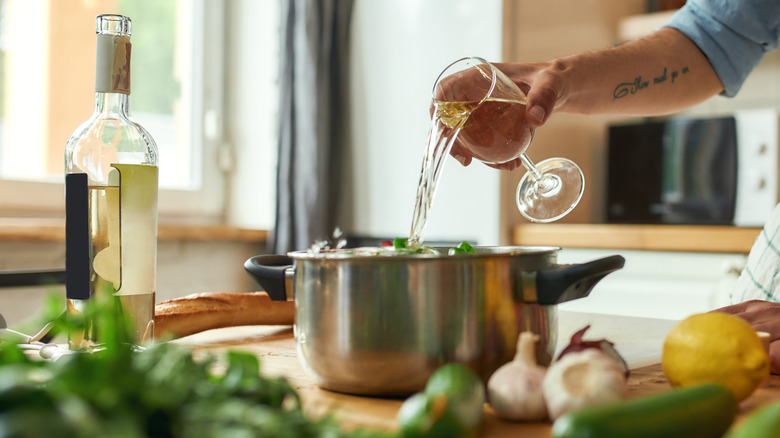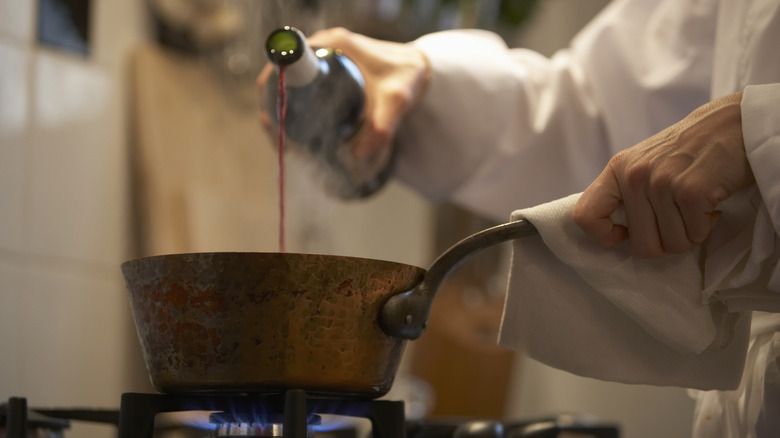Cook White Wine With Specific Foods For Culinary Success
From deglazing pans to adding acidity, cooking with white wine brings notable depth and a touch of sophistication to a dish. We spoke with Antonio Morichini, chef and owner of the Queens-based Italian restaurant Via Vai to gain an understanding on the best ways to incorporate white wine into cooking. "There are several ways to use wine in cooking, and the ingredients and cooking methods dictate the kind of wine to use," Morichini says. "For example, if deglazing a pan that had white meat or fish in it, a white wine is great. The alcohol will evaporate, leaving behind the natural acidity of the wine to balance the flavors of the dish while elevating the aroma. A dry, crisp wine is best — I prefer a good Pinot Grigio or Sauvignon Blanc."
With Morichini's methods in mind, it's clever to avoid sweeter white wines when cooking. However, most bottles will indicate on the label whether they're dry, sweet, or somewhere in between, so don't completely write off certain sweet wines that may have an appropriately dry variation. When you've settled on a bottle, consider utilizing it in complementary dishes like salmon smothered in a mushroom white wine reduction or a lemony chicken piccata.
So pick out a bottle (a screw top variety is fine might even be better than corked bottles) and get to cooking. Try chilling your wine in ice water in between cooking to keep it chilled and then to serve as a refreshing dinner accompaniment.
The best substitutes for white wine when cooking
If you're in a pinch and have no wine on hand or don't drink alcohol, there are a few suitable substitutes for white wine when cooking. One is alcohol-free wine. When done properly, it's crafted nearly the exact same way as regular wine, sans alcohol. You can also consider lemon juice or apple cider vinegar, but be sure to add these to the pan sparingly to save yourself from an excessively sour meal.
Consider mixing the vinegar or lemon juice with chicken or vegetable broth for a deeper flavor that also encompasses the bright flavor of white wine. If you're following a recipe that calls for white wine and you need a little more confidence before you stray from the listed ingredients, find further guidance in these commonly made mistakes when following a recipe.
If you simply aren't a big wine drinker and struggle to finish a bottle before it goes bad, but still would like to relish in all the flavors cooking with white wine has to offer, consider freezing your extra wine in ice trays. You can simply add wine cubes to your hot pan as needed when cooking. Stored in an airtight container in the freezer, they last about three months. It won't have the exact taste of a just-opened bottle, but it's should be good enough for cooking.

